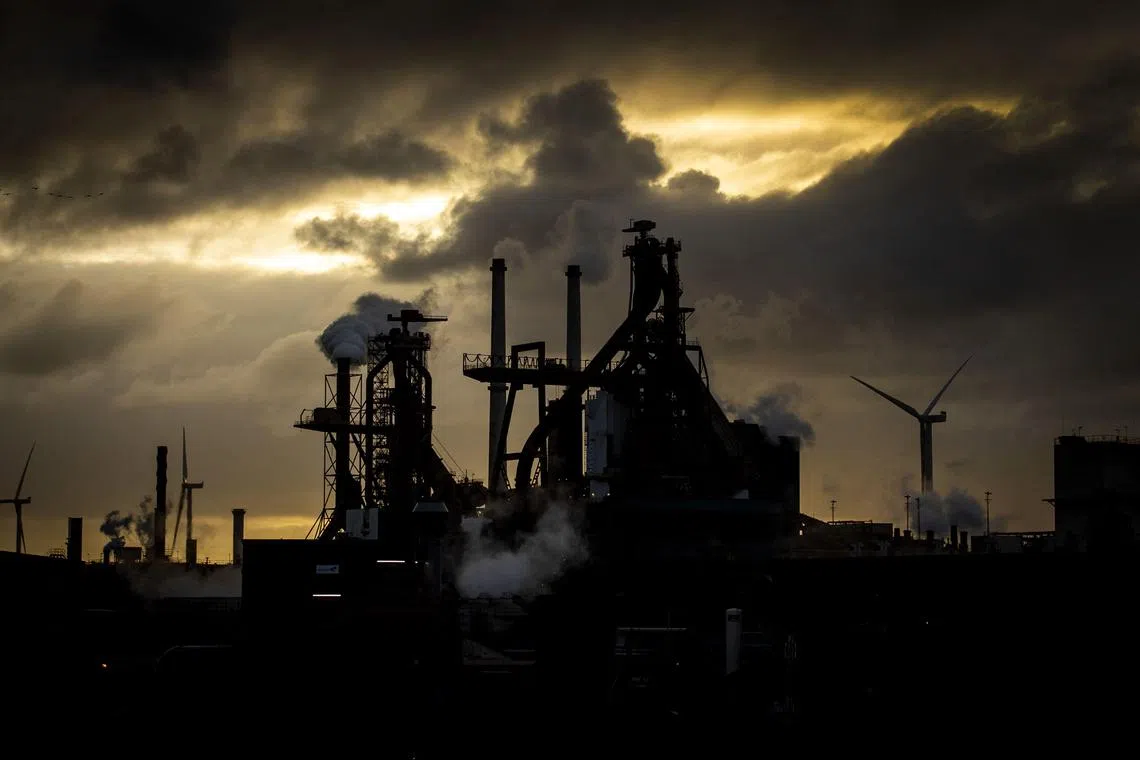The economic slowdown is making decarbonisation harder for companies
Sign up now: Get ST's newsletters delivered to your inbox

Almost two-thirds of heavy industrial companies say decarbonisation will not be economically attractive before the end of the decade.
PHOTO: AFP
Follow topic:
LONDON – The global economic slowdown is starting to weigh on corporate efforts to achieve climate goals.
Some 40 per cent of heavy industrial companies worldwide say they are unable to invest further in decarbonisation due to the current environment, according to new research by consultant Accenture, which surveyed 1,000 executives. Almost two-thirds indicated their main efforts to cut carbon emissions will not be economically attractive before the end of the decade.
“If heavy industry fails to decarbonise, all others fail,” the researcher said.
The findings come as some governments have pulled back from plans to support renewable energy and low-carbon products amid high inflation and concerns about cost and energy security. Accenture’s research suggests that companies are also moving more slowly, at a time when severe weather events across the globe highlight the damaging effects of climate change.
In a separate report released Thursday, the consultant found that just 18 per cent of companies are on track to meet net-zero goals by mid-century. At the same time, 37 per cent have pledged to reach net-zero – up from 34 per cent in 2022 – it said, in an analysis of 2,000 of the world’s largest firms.
“It’s promising to see an increase in public commitments to net-zero targets again this year, but the adoption of key decarbonisation measures is not uniform, with some companies still unable to master the basics,” Mr Jean-Marc Ollagnier, Accenture’s chief executive officer for Europe, Middle East and Africa, said in a statement.
Europe fared better than other areas of the world, with 61 per cent of companies surveyed having net-zero targets, compared with 28 per cent in North America and 30 per cent globally. However, just 24 per cent of European companies were on track to actually reach net-zero by 2050. BLOOMBERG

